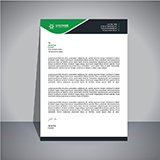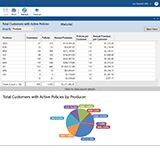Every agency owner has asked this question. Can you answer it based on today's buyers?
By Mike Brady
Brady Financial Group LLC
Many insurance agency owners have long relied on an old formula for determining the value of their business.
"I don't need a valuation," one owner told me, "I know how it works. Everyone gets a multiple between one and two times revenue." Interestingly, the following year that owner was surprised when a prospective buyer started looking at his company and things got more complicated.
The first problem with the 'one to two formula' is that it's both true and false. Many transactions do end up valuing out at 1 to 2 times revenue. Depending on the size of your firm, that can be a very big range. Consider the difference between one and two times revenue for a $1,000,000 agency. The difference is a million dollars!
So you need to ask yourself – is getting more of the second million that you might have gotten – worth a little time and money? Is your goal simply to get out – or to get out with as much money in your pocket as possible?
The second problem with the 'one to two formula' is that using such a formula doesn't mean that your business was fairly valued. Buyers are generally pretty sophisticated today and will want to consider a variety of factors besides revenue. As a result, using a more sophisticated method can protect you – if you're smart.
Here's an example. An owner, 62, has an agency with a $2 million book of business. The owner wanted to sell and thought a multiple of revenue of 1.5 or higher would produce a sale price of $3,000,000 to $3,500,000 for the agency. He hadn't done any prior homework or planning for this exit strategy. The transaction ended up closing for $2,000,000.
What accounted for the lower value? Several very important factors played a role: 1) two accounts made up 40% of the book – and one of those large accounts was a long-time friend of the owner with no loyalty to the acquiring agency; 2) the owner was not willing to stay involved going forward; 3) the agency's other top producer did not have an employment contract; 4) 50% of the book was with one carrier. And the list goes on.
While it would be natural for the owner to feel disappointed or that he had been outflanked by a savvy buyer, perhaps the reality is different. Had the owner done more due diligence and gotten a thorough valuation, each of those costly – and very fixable – vulnerabilities would likely have come to light and been remedied before the selling process even began. In effect, his attempt to take an easier path cost him as much as a million and a half dollars.
This kind of mistake is much more common than most agency owners realize. We've seen it again and again. Unfortunately, there is no way to fix it later – or even during the selling process. What's done is done.
What's the alternative? The smartest path is for owners to really know the value of their agency. Valuations are not just for transaction purposes. They identify risks and vulnerabilities while you still have plenty of time to address them. And they can educate owners so they are as savvy and prepared as the buyers who will be combing their books. The old saying is still true – it's never too early to plan ahead. And it's never too early to begin to build toward an exit strategy that maximizes your take-away.
Even though your agency is likely the largest asset you own, most owners spend little if any time understanding what their agency is worth and how to increase the value. Identifying areas that need to be addressed is good business and good for your sale price. After all, you probably spend most of your day identifying areas of risk that your clients should consider addressing, why not do the same for your business?
















